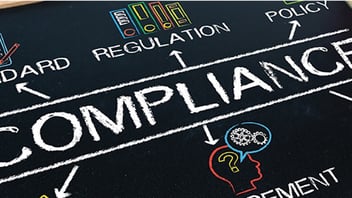In the world of marketing, bigger is not always better. You may have decided to outsource your marketing, but what type of agency should you choose? At Digital Media Stream, we often get asked “why should I choose a smaller agency over a larger one?”. So, we have chosen our top reasons why.
It’s tempting to opt for a big agency, especially if you’re a big company. But choosing a big marketing agency for your business isn’t always the answer.
Many factors demonstrate that larger agencies provide a less personalised, individualised experience than a smaller agency. Plus, if you aren’t a ‘big-retainer’ client for them (i.e. the small fish in the big pond), then your account may suffer from undue neglect.
Here are 5 reasons to choose a small agency for your marketing. A small agency will...
- Offer Individualised Service
- Value Your Business
- Be Adaptable and Flexible
- Provide Specialisation
- Radiate Creative Thinking
1. Offer Individualised Service
It’s easy to fall into the trap of thinking that only a big marketing agency can have the resources to handle your marketing. But that is simply not the case. One major element that many bigger agencies struggle to offer is a personalised approach.
The individualised attention means you’ll know everyone who works on your account, get to know the team, get one-on-one attention, build a solid relationship, and have an agency who takes the time to know your business inside-and-out. Plus, when you pick up the phone, someone who you actually know will always be available to answer any questions you have.
Lindsay Mullen from Prosper Strategies elucidates in Forbes: “Hiring a small agency means you're going to get the time and attention of the firm's leadership and best strategic thinkers – this means more entrepreneurial and creative thinking as well as agility. You're also selecting to work with a team where every client counts, so there will be genuine interest in your success.”
With a smaller agency, there’s one small team and each person will know the ins and outs of your marketing campaign, because you aren’t just one account in a batch of a hundred others. Your point of contact will not only know everything there is to know about the current campaign, but they are also likely to have a direct hand in the work too. Therefore, you benefit from expertise as well as individualised service.
The bottom line is that a smaller agency will always put you first. You’ll get the attention that you expect. You won’t feel like just an account number with a price tag.
2. Value Your Business
Smaller agencies see you as the big fish in their small pond – not the small fish in the big pond in the case of working with a bigger agency. Your success matters more to smaller agencies because they want to retain your business, build their reputation, and help you achieve results. They want happy customers that shout about their services from the rooftops and keep coming back.
You become a valued client with a smaller agency and you’re not lost in the ocean of other clients whose needs may be deemed more pressing than your own. Although all agencies do care about the success of their clients, smaller agencies can provide a greater level of dedication as your success is more closely linked to their success.
Smaller agencies gain much more from your success because your individual account matters more; your retainer will represent a bigger overall percentage of revenue than if you put that same retainer in a large company, which means your business is proportionally more important to them. Larger agencies will naturally favour their big-retainer accounts and if you aren’t one of them, then they have less incentive to ensure they retain your business.
3. Be Adaptable and Flexible
Smaller agencies often have a less complicated approval and decision-making process, because the decision maker is likely to be personally involved in your account. This means that you as a client can benefit from additional speed and flexibility.
Small agencies will have their fingers on the pulse, looking at the analytics routinely and responding when things aren’t working. These industry professionals can keep ahead of evolving marketing trends and change tactics when needed. They will be ready to experiment and implement a change of strategy in order to deliver the results.
If you’re working with a large agency, you’ll likely find they’re slow to adapt, because changes often require additional approvals and paperwork (the like of which is less of an issue for smaller agencies).
Forbes quotes Ryan Pezzotti from Knowzo to reiterate the corporate bottle-neck: “Larger agencies often come along with more approvals, many signatures and multiple levels of authority. Brands who want to move quickly without weeks of paperwork and processes should consider hiring a small agency. Smaller agencies tend to embrace an agile approach, yet can deliver faster results and provide flexibility.”
Fast, adaptable, and flexible are key adjectives that successful businesses share. It is a fact that smaller agencies can be quicker to embrace trends and more flexible when it comes trying them. For example, if one marketer reads about a new concept from a reputable source, then an email can be sent round the office, and by the afternoon, the whole team could be trying out something new to see if it works.
A smaller agency may also have the capacity to offer flexibility for your account. If you want extra blogs published this week, a new press release written because you have a big announcement, or to switch out three blogs on that campaign for new titles, then you’re much more likely to get a green light. There’s no ten-step approval process or capacity considerations to hold up your plans.
4. Provide Specialisation
Many small agencies have their own niche specialisations. Some may not offer as wide a range of services, but that means they are likely to be experts in what they do offer; they don’t spread themselves too thin, trying to be experts in anything and everything.
When researching which agency you’d like to choose, it’s a good idea to do your homework and see what marketing services your business needs. Even though you may want everything from web design, to email content and paid advertising you may not need all of those services. No business likes to pay for services they don’t need and a smaller agency of experts won’t try to oversell you services that are not right for you.
For businesses that want to test the waters of a small agency, you may hire them for smaller projects. For example, if you want a specific lead generation campaign, then you can hire an agency that offers that service. Many larger companies wouldn’t facilitate smaller, ad-hoc projects without a larger commitment, but smaller agencies often can do this to meet your needs. Off the back of that one successful project, you may be so impressed that you hire the small agency to run an entire marketing campaign!
5. Radiate Creative Thinking
Many small agencies begin when those individuals from larger agencies break free in search of more innovative techniques and solutions to offer their clients.
Thinking outside the parameters is what smaller agencies do, radiating creativity to drive results. There are no blockers to creative thinking, and all brains will be on board – from the CEO down.
Smaller agencies often attract and retain the best talent that really want to make a difference and grow professionally. With larger agencies (and any larger business) sometimes people can feel like a number, lost in the wider pool. By attracting and retaining the best talent it is not only the agency that benefits but you, the client.
A small agency will be with you every step of the way to drive the results you want, using only the services you need. By choosing a smaller agency, you can benefit from a burst of creativity, fresh thinking, and a personal touch.
Find Out How We Can Improve Your Marketing?
At Digital Media Stream, we pride ourselves on being a small agency. Get in touch with a member of our team to book a free Marketing Assessment. We’ll explore your current marketing efforts, give you pointers on how to improve, and discuss your marketing needs.




